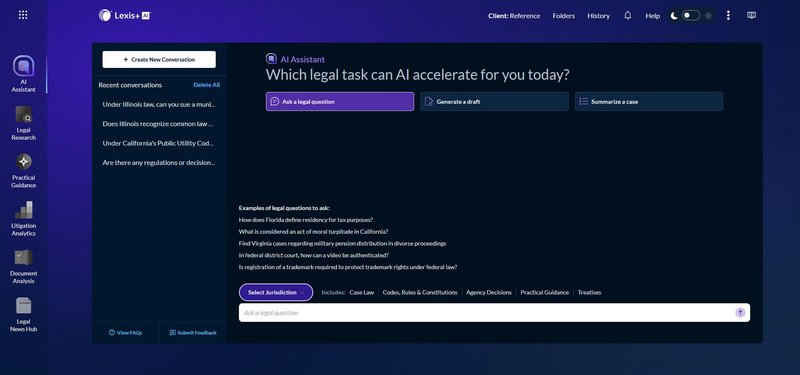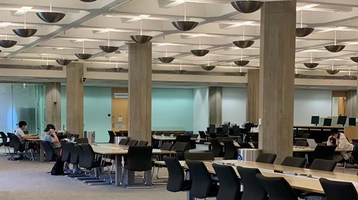April 2024: D'Angelo Law Library Emerging Technologies Update
LexisNexis Unveils Second-Generation of Lexis+ AI
LexisNexis announced that it will release the second generation of its legal generative AI assistant in early May. Lexis claims that the second-generation version of its product will include the following enhancements:
- Faster results
- Increased number of prompts permitted per conversation from five to ten
- Improved task-specific recommendations relating to drafting
- New delivery options for conversations, including email, download, and print
- Ai-generated statute summaries
- Increased document upload capacity—Lexis+ AI will now permit uploading documents containing up to 400,000 characters (approximately 150 pages)
- An improved user interface
LexisNexis has not yet confirmed if the update will be rolled out to academic users at the same time as professional customers.
Law360 Pulse Releases Report on Lawyer Opinions About AI
Law360 Pulse has released a survey of 384 lawyers working at law firms conducted from December 12, 2023, until February 28, 2024. Among the interesting findings:
- 31% of lawyers reported their firms have warned against unauthorized use of generative AI at work.
- 10% reported that their firm was developing an internal generative AI tool and 35% reported their firm currently works with at least one generative AI provider.
- Lawyers are nearly evenly split on the effect AI will have on the legal profession: 27% believe it will have an overall positive effect while 23% believe it will have an overall negative effect (the remainder were neutral or unsure).
- 14% reported that clients expect their firm to use AI as part of its work.
United States Copyright Office (USCO) Recognizes Copyright for “Selection, Coordination, and Arrangement of Text Generated by Artificial Intelligence”
Wired has a detailed story about the efforts of Elisa Shupe to register the copyright for her self-published book AI Machinations: Tangled Webs and Typed Words, which she created using text generated by ChatGPT. While her application was initially rejected because it did not meet copyright law’s human authorship requirement, on reconsideration after she retained Brooklyn Law Incubator and Policy Clinic, the Copyright Office granted her registration of a limited copyright on the "selection, coordination, and arrangement" of the AI-generated text in her book. The registration did not, however, extend to the AI-generated text itself. USCO based its decision on its published guidance on Works Containing Material Generated by Artificial Intelligence of March 16, 2023, which provides that copyright registration may be permitted for creative selection, arrangement, or modification of AI-generated content.
The copyright registration record for Shupe’s book can be viewed on USCO’s database here, and the USCO correspondence regarding the reconsideration of her application can be found here.
Further Assistance
If you are interested in learning more about generative AI, including its use in legal research and education, please see our research guide on the subject, request a research consultation with a D'Angelo Law Librarian, or chat with us at Ask a Law Librarian.



